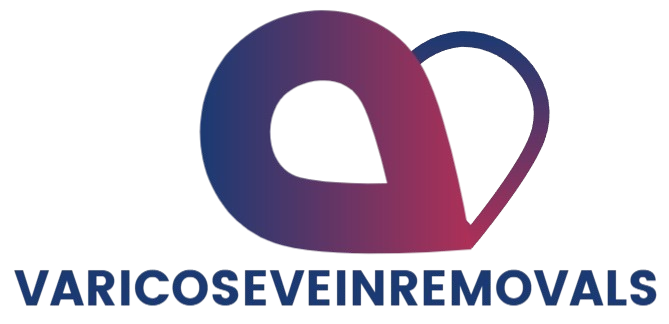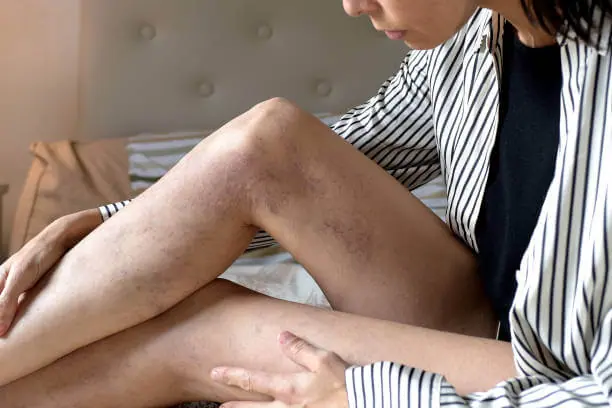When discussing vein disease, most of the conversation revolves around the medical aspects—what causes it, how it’s diagnosed, and what treatment options exist. However, there’s another crucial side to vein disease: its impact on a person’s quality of life. Conditions like varicose veins, spider veins, and deep vein thrombosis (DVT) can significantly affect not only your physical health but also your emotional well-being and everyday functioning.
Understanding how vein disease can alter your life experience is essential in recognizing the importance of seeking timely treatment. In this article, we explore how vein disease can affect various aspects of life, from physical limitations to emotional and psychological challenges, and the ways treatment can help improve your overall well-being.
Physical Limitations
In the early stages, vein disease may go unnoticed, especially if you don’t experience significant pain or other symptoms. At first, visible veins might be the only sign that something is amiss. But as the condition progresses, its effects on physical activity become increasingly evident. For individuals with varicose veins or chronic venous insufficiency (CVI), standing or walking for long periods can become painful or tiring.
This can limit your ability to engage in everyday activities, whether it’s going for a walk, exercising, or even working. Physical limitations aren’t just about discomfort—they affect your overall lifestyle. You might find it harder to keep up with the demands of your job or enjoy hobbies and leisure activities. As you tire more easily or experience persistent aches in your legs, the desire to remain active diminishes, leading to a more sedentary lifestyle. This can also have long-term health consequences, as reduced physical activity can contribute to weight gain, loss of muscle tone, and overall poor circulation.
Low Self-Esteem and Self-Confidence
One of the most immediate and visible impacts of vein disease is its effect on self-image. Varicose veins, in particular, can lead to enlarged, twisted veins that are highly visible on the skin’s surface. For many people, especially women, these veins can be a source of embarrassment and self-consciousness.
People with varicose veins often go to great lengths to cover up their legs—wearing long pants, avoiding shorts, and sometimes even avoiding activities like swimming or going to the beach. This behavior is not only due to the physical appearance of the veins but also the emotional toll they take. As your self-esteem takes a hit, so can your confidence in other areas of life. The anxiety surrounding the visibility of your veins can lead to social withdrawal, affecting your interactions with others and your enjoyment of activities that you once found pleasurable.
Sleep Disturbances
Chronic venous disease can also interfere with your sleep. For many individuals, conditions like restless leg syndrome (RLS) are common companions to vein disease. RLS is characterized by uncomfortable sensations in the legs that create an overwhelming urge to move them, particularly during rest or sleep. These sensations tend to worsen at night, disrupting sleep and making it difficult to fall or stay asleep.
Sleep deprivation, in turn, can create a cycle of fatigue, making it harder to cope with the physical and emotional symptoms of vein disease during the day. This can result in decreased productivity, poor mood, and a general lack of energy to engage in daily tasks.
Healing Difficulties
In more advanced cases of vein disease, venous ulcers can develop. These painful, slow-healing sores typically form around the lower legs and ankles, where blood flow is compromised. Venous ulcers can take weeks or even months to heal and are often prone to infection, making them a persistent concern for individuals suffering from chronic vein disease.
The presence of ulcers adds a layer of complexity to daily life. Not only can they be painful, but they can also make it difficult to find clothing that fits comfortably and doesn’t exacerbate the condition. Additionally, the appearance of the ulcers can cause further embarrassment or discomfort when interacting with others. Managing venous ulcers requires careful attention and proper treatment, which can be both physically and emotionally draining.
Psychological Impact
The combination of physical limitations, self-esteem issues, sleep disturbances, and healing difficulties can take a significant toll on mental health. The emotional strain caused by vein disease is often overlooked but is a critical factor in how individuals experience the condition.
The frustration of dealing with chronic pain or discomfort can lead to irritability and dissatisfaction with daily life. Anxiety about the progression of the disease, coupled with the stress of managing visible symptoms, can contribute to feelings of depression. Worrying about the need for future treatments or the potential for the disease to worsen can increase stress levels and contribute to a general sense of helplessness.
In addition, living with a condition that impacts both physical appearance and mobility can cause feelings of isolation. People may withdraw from social events or avoid activities that they once enjoyed, leading to a reduced sense of connection with others. This isolation can further exacerbate feelings of loneliness and low self-worth.
The Importance of Treatment
Given the far-reaching effects of vein disease on quality of life, it is crucial to seek treatment as soon as symptoms begin to interfere with your daily activities or emotional well-being. While vein disease is often manageable with the right interventions, failing to address it can lead to worsening symptoms and increased psychological distress.
Treatment options for vein disease range from non-invasive therapies, like compression stockings and lifestyle changes, to more advanced procedures like sclerotherapy or laser treatments. Consulting a healthcare provider or vein specialist is essential to determine the most appropriate course of action for your specific condition.
Early intervention not only helps alleviate physical symptoms but can also reduce the emotional burden that accompanies vein disease. By addressing both the physical and psychological aspects of the condition, treatment can significantly improve quality of life and restore a sense of control and confidence.
Conclusion
Vein disease is more than just a physical condition—it can profoundly impact an individual’s quality of life. From limiting mobility and causing discomfort to affecting self-esteem and emotional well-being, the effects of vein disease are far-reaching. Recognizing the connection between physical symptoms and psychological health is crucial in managing the condition effectively.
If you’re experiencing symptoms of vein disease, don’t wait for them to worsen. Seek help from a vein specialist who can guide you through treatment options and provide the support you need to regain a sense of well-being. With the right treatment and care, it’s possible to manage vein disease and improve both your physical and emotional quality of life.



